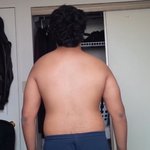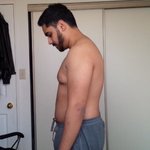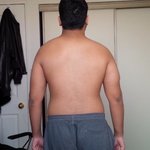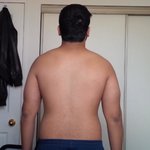Good work!
As to belly fat, there are the standard truisms about one not being able to pick where the fat comes off a body, and of course "abs are made in the kitchen" but there are also factors that make a body more likely to store fat on the belly. The body likes it there because that is where it first draws on fat when using it as a fuel source. Elevated cortisol levels will put it there, so managing stress helps with not storing it, but in the end, there is no fat accumulation without insulin. Insulin shunts sugar to fat and makes your fat cells grow. Reduce your insulin levels by managing your blood sugar.
Personally eating lower carb works well for me. I'm not talking ketosis or even very low carb, but get your carbs from whole foods: veggies and fruit, beans, rice, starchy roots and tubers. No sweetened beverages (drinking your calories is always a bad idea - the body doesn't recognize those calories and won't send the signal that you've had enough), no juice, and no highly processed foods - if it comes in a package you probably shouldn't eat it. My rule of thumb is from Michael Pollen - if it has more than 5 ingredients or contains something that isn't food (like poly-syllabic chemical compositions) don't eat it.
Keep in mind, processed grains (like pasta and bread) turn to sugar very quickly once eaten. This spike in blood sugar in turn generates a spike in insulin. Since chances are good you are at least a little bit insulin resistant, your body is more likely to push that sugar into your fat cells and the belly fat cells almost never say no.
If making some dietary changes is at all interesting to you, take a look at Whole30 as a starting point.









